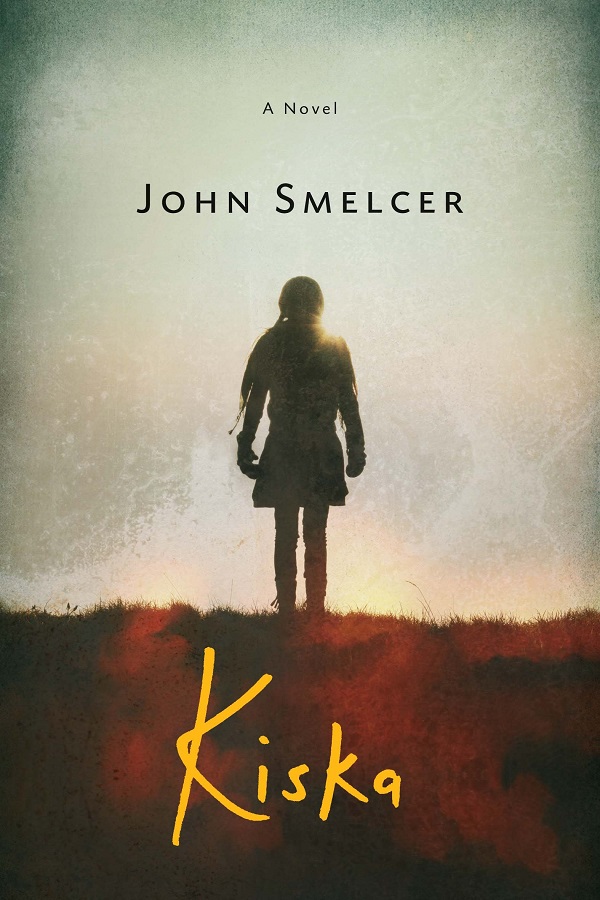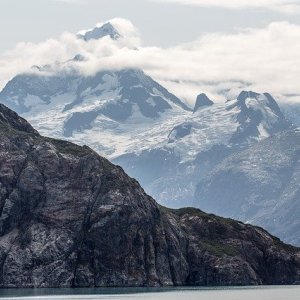
About the Book
-
Author:
- John Smelcer
- Genre:
- Historical Fiction
- Voices:
- Christian
- Cis Girl
- Native / Indigenous
- Straight
Cover Story: Sun Salutation
Drinking Buddy: Qaĝanaazax̂!
Testosterone Estrogen Level: Rosie the Kayaker
Talky Talk: The Fog of War
Bonus Factor: The Aleutian Islands
Bromance Status: Forgotten Battles
Cover Story: Sun Salutation
It’s okay, I guess. But in a book with soldiers and seal hunting and warfare, I want more than what looks like a yoga pose.
The Deal:
In 1942, Japanese forces invaded the Alaska Aleutians, occupying the two westernmost islands. Fearing that if they took the island chain, the Axis could use this is a staging ground for attacks on Anchorage or even Seattle, U.S. forces were prepared to hold the islands at any cost. Unfortunately, there were already people there.
Fourteen-year-old Kiska lives in a small Aleutian fishing/sealing village. Their home is a mix of Aleut, American and Russian culture. One day an American ship shows up and a colonel orders everyone to gather. He announces that for the safety of the residents, everyone would be moving to the mainland. Right now. This minute.
The residents are forcibly removed from the islands and, after a hellish boat trip, deposited at an abandoned cannery. This is now home. They are now essentially slaves of the U.S. government.
Kiska, who’s in full teenage rebel mode already, does not take kindly to this, nor does her older brother, Peter. And they’re willing to do anything it takes to wait out the war on their own terms, or at least to survive.
Drinking Buddy: Qaĝanaazax̂!

So none of Kiska’s family or friends take kindly to this forced enslavement, but they’re pretty intimidated by the, you know, armed soldiers guarding them. Peter and others his age pull off little acts of rebellion, but that doesn’t get the food and medicine everyone needs. But Kiska realizes early on that the soldiers never suspect much from a woman, let alone a young girl. Soon, Kiska is hunting and fishing for the entire village, in secret.
Yeah, she’s a badass.
Testosterone Estrogen Level: Rosie the Kayaker
The government troops see Kiska as a savage. Her people do not allow women to hunt or fish. Kiska says screw this and proceeds to find food for everyone. An old man (some say he was a shaman) takes her under his wing and teaches her the old arts, recognizing her as the one who can help her village. Kiska faces down bears, treacherous seas, and rapey soldiers in order to bring in the food that’s in such short supply.
Also, there’s a boy named Sasha who’s also in the camp. He and Kiska have only just graduated from the cooties phase, but still…
Talky Talk: Fog of War
Now I was all set to sing the praises of this book from the rooftops. The barbarous treatment of these innocent Americans is nothing but a national disgrace. But after reading a few reviews, I’ve seen that the author may have exaggerated things a bit. For instance, the soldiers probably did not deliberately shoot all the Aleuts’ pets. And the interned people might not have been held hostage at gunpoint as in the book. They were actually free to go to town and find work if they could get it. And the author may have lied about (or exaggerated) his claims of Native American heritage.
But a little independent research shows that many of the events portrayed in the book really did happen. The Aleutian Islanders were forcibly relocated for the duration of the war. The men were commanded (under threat of never being allowed to return to the islands) to go harvest seals to be used as linings for flight jackets; the pelts were then sold to private industry at a profit. The U.S. military did burn several villages out of fear the Japanese would occupy them. And the Islanders’ homes really were used to billet U.S. troops. Many families returned to find their houses ransacked and their possessions stolen or destroyed.
I especially liked the bit where Kiska joins a work crew and visits a POW camp where German solders are being held. She’s aghast to realize that enemy soldiers are living in relative comfort while her own family is barely getting by in a leaky, freezing old factory. I think that scene hit home for me because my great-uncle once told me how during basic training, he was mocked by a POW work crew made up of former members of Rommel’s Afrika Korps. Also, my mother’s uncle wound up as a POW in Germany, while my stepmother’s uncle wound up as a POW in the United States. Full circle.
Bonus Factor: The Aleutian Islands

Everyone remembers Pearl Harbor. But not everyone remembers that enemy troops occupied what later became U.S. territory. The islands were liberated only after after a year of occupation and some intense hand to hand combat. It was fascinating to learn more about this forgotten battle.
It was also interesting to learn that the Aleuts spent over a century under the thumb of brutal Russian fur traders who used them as slave labor. Kiska’s friends and family, like many Aleuts, had Russian last names and were Russian Orthodox Christians.
Bromance Status: Forgotten Battles
While I don’t think I’ll read you again, you did get me interested in a forgotten battle and a forgotten injustice. I’ll keep spreading the word.
FTC full disclosure: I received neither money nor seal pelts for writing this review.